Disability 101
Disability 101
A disability is any condition—physical, mental, or sensory—that makes everyday tasks more difficult. To ensure equal opportunities, it’s essential to create inclusive workplaces and environments that accommodate and remove barriers, allowing everyone to fully participate in the workforce.
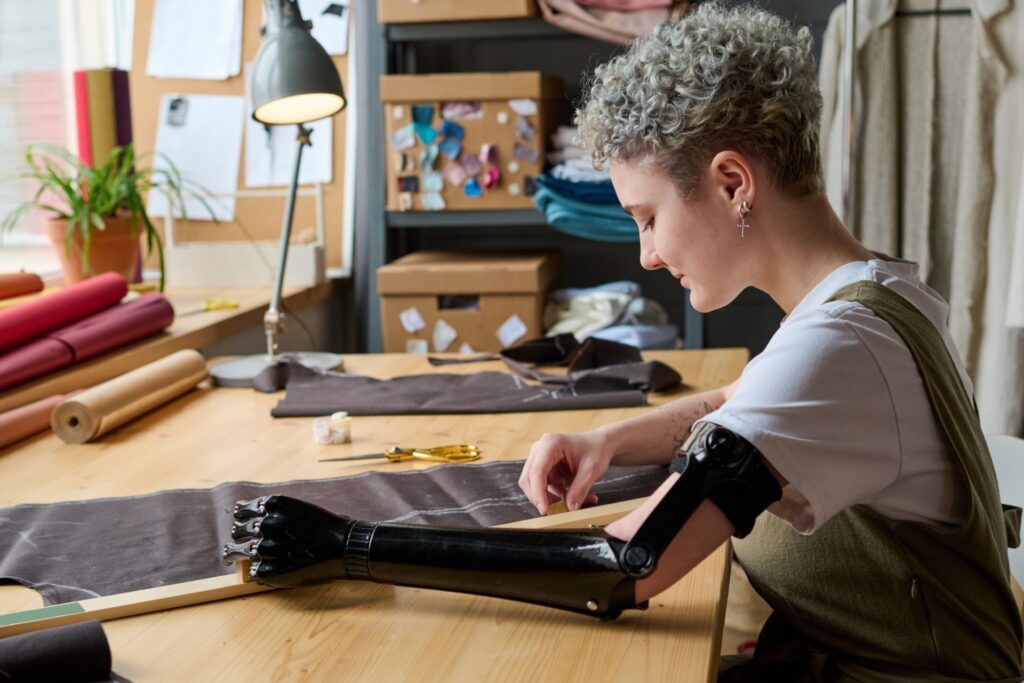
Disabilities affect over 71 million Americans, yet fear, stigma, and discrimination often cause us to shy away from discussing them openly.
What is a Disability?
There are a wide variety of disabilities.
Disabilities encompass a broad spectrum, including conditions such as anxiety, cancer, diabetes, autism, paraplegia, and cerebral palsy. It’s important to recognize that neurodiversity, mental health conditions, and various diseases also fall under the umbrella of disability.
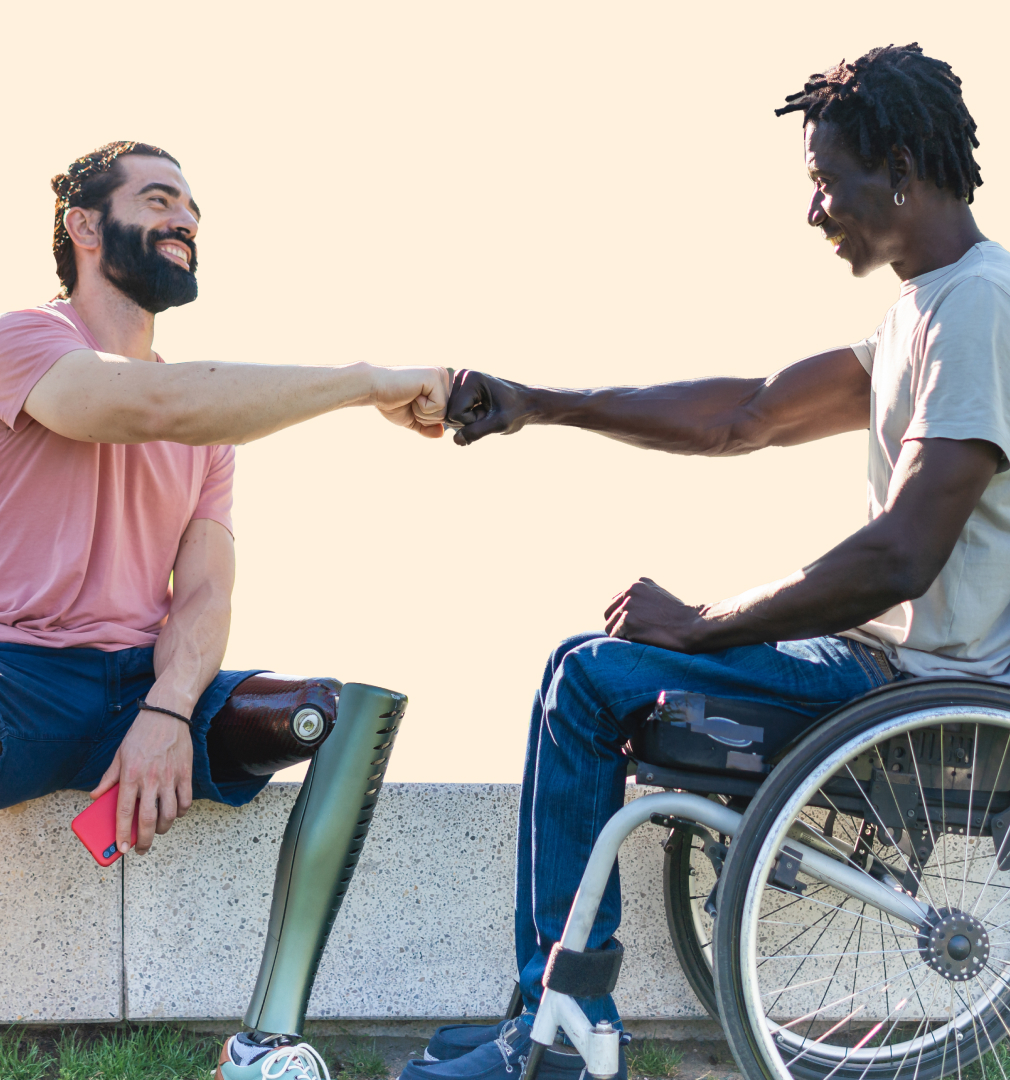

Disabilities are often non-apparent.
Disabilities aren’t always visible or physical. Many conditions, such as asthma, ADHD, Crohn’s disease, or traumatic brain injury, may not be immediately apparent but still impact daily life. People with these invisible disabilities can thrive in various roles without their disability being obvious to others.
Disabilities are common.
Millions of people across all demographics have a disability, making them a common part of society. Whether apparent or non-apparent, disabilities impact people in various ways, from the workplace to daily activities, and are a reality for many families, friends, and colleagues.
Disabilities may be:
- Neurological
- Sensory
- Physical
- Mental Health
- Cognitive

Over 1 in 4 Americans have a disability. Due to stigma and misconceptions, many disabilities go unreported—the real number is likely greater than 40%.
An estimated 80% of disabilities are non-apparent.
Of American adults have a mental health condition.
Why Invest in Disability?
Embracing disability inclusion isn’t just the right thing to do—it’s a smart business strategy. Inclusive workplaces drive greater innovation, creativity, productivity, and employee engagement.
By fostering a culture of inclusion, companies unlock access to a highly capable and often overlooked talent pool, while also strengthening brand reputation and building loyalty within the $1 billion U.S. disability market.
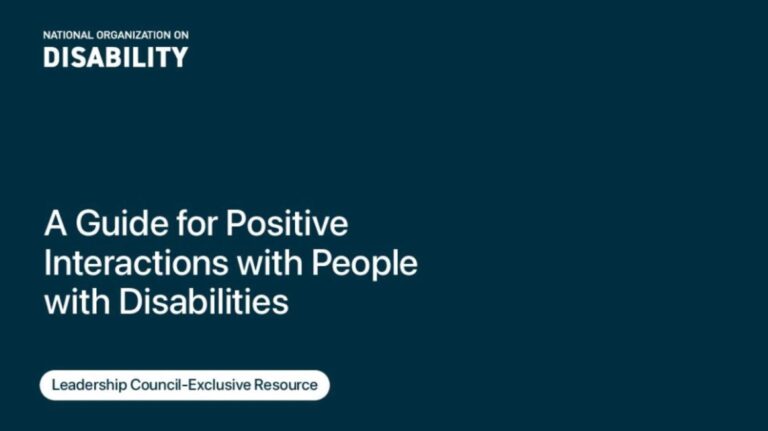
Disability is Not a Bad Word
Use this guide to gain essential insights on respectfully engaging with individuals with disabilities.
Disability History
This timeline highlights key events and milestones in the history of disability, showcasing how laws, advocacy, and societal attitudes have evolved over time. It provides an overview of progress made and the ongoing challenges in the pursuit of equality and accessibility.
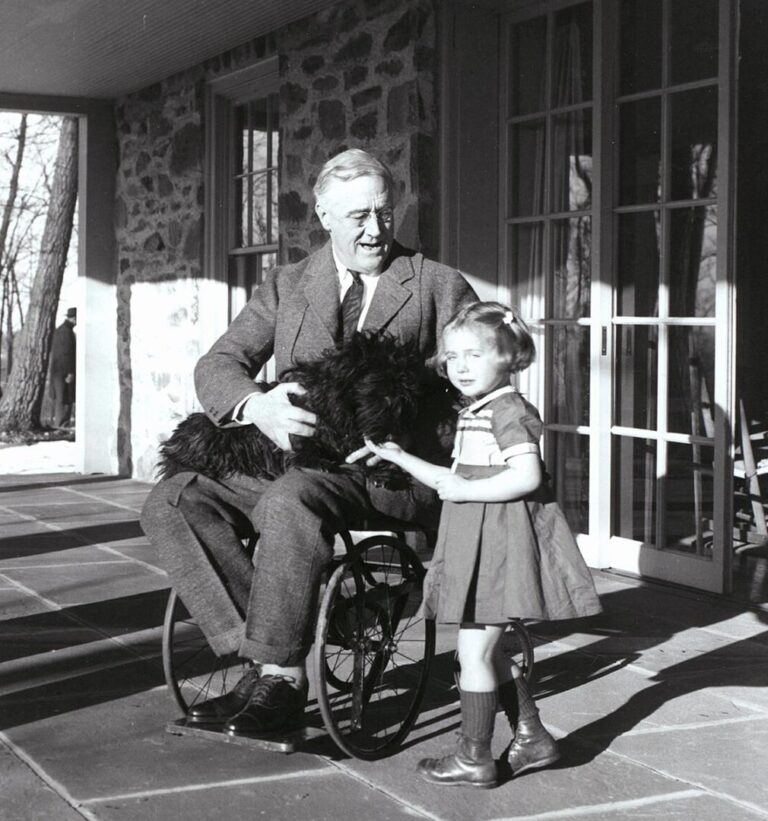
1932
Franklin D. Roosevelt, elected the 32nd U.S. President, served four terms and led the nation through the Great Depression and WWII. Having developed paralysis years earlier, he used a wheelchair and remains one of America’s most influential presidents.
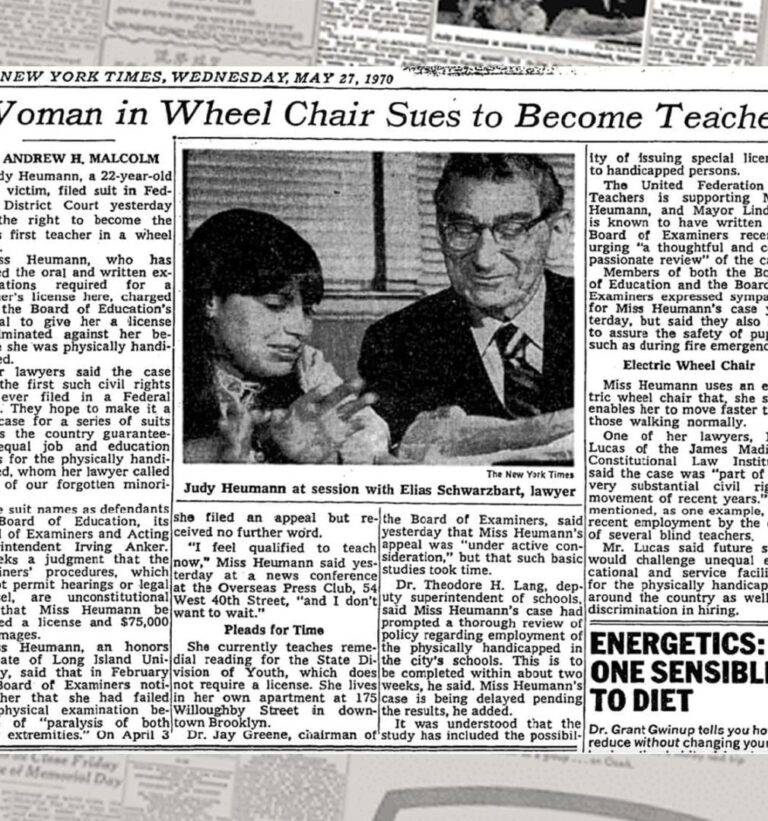
1970
After being denied a teaching license because her wheelchair was deemed a fire hazard, Judy Heumann sued NYC’s Board of Education. The case launched her lifelong advocacy, and today she is regarded as the “Mother of the Disability Rights Movement”.
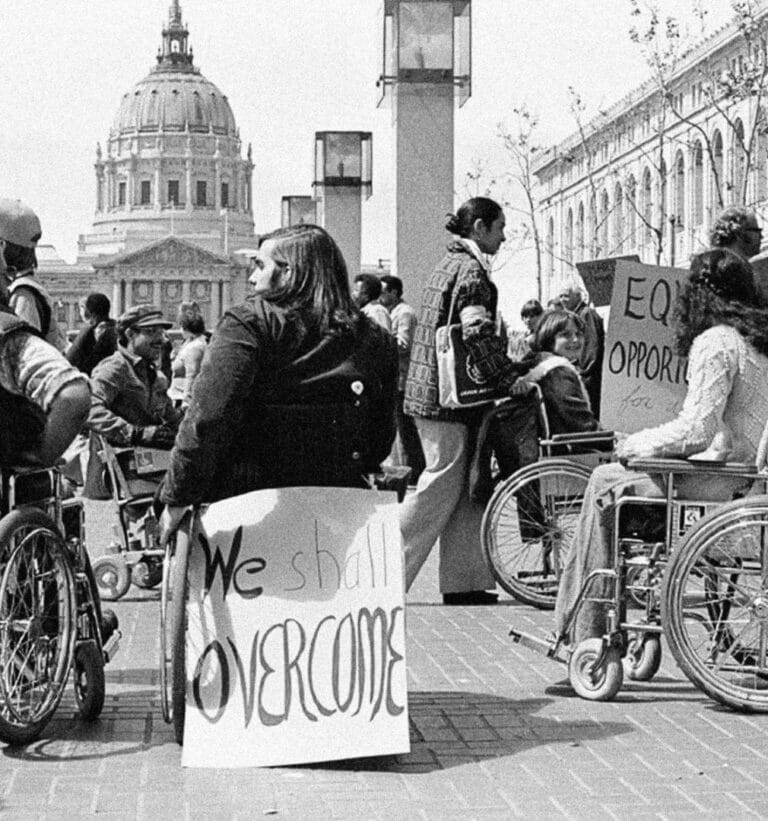
1973
Enacted in 1973, the Rehabilitation Act marked a major milestone in disability rights. Section 504 specifically prohibits discrimination on the basis of disability in federally funded programs and activities.
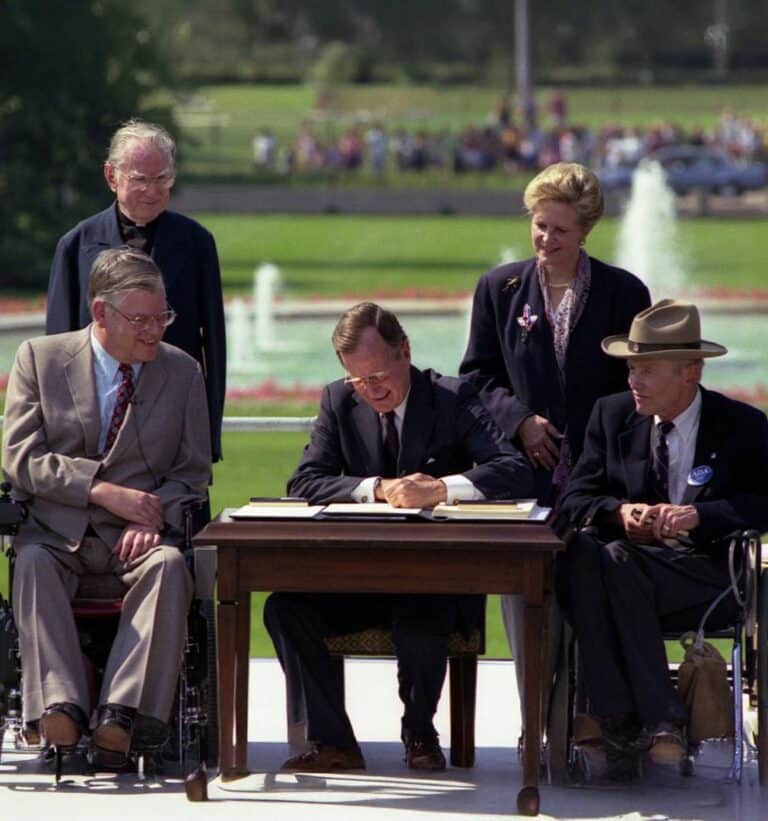
1990
Signed into law on July 26, 1990, the Americans with Disabilities Act marked a pivotal civil rights milestone. This historic piece of legislation prohibits employment discrimination and requires reasonable accommodations, ensuring equal opportunities for people with disabilities.

2008
The ADA Amendments Act of 2008 broadened the ADA’s definition of disability, extending protections to more people. Passed in response to narrow Supreme Court rulings, it ensured coverage for conditions like cancer, diabetes, and epilepsy.

2012
Twenty-two years after signing the ADA into law, George H.W. Bush shared that he now used a wheelchair—a reminder that disability can affect anyone, and that today’s advocacy shapes the future for us and our loved ones.

2013
The U.S. Department of Labor’s OFCCP revised Section 503 regulations, setting a 7% utilization goal for workers with disabilities and requiring employers to track self-identification throughout the employee lifecycle.
Tribute to Judy Heumann
Our 2023 tribute honors the late Judy Heumann, ‘the mother’ of the disability rights movement and a beloved friend of NOD.
Learn more about our history and legacy, championing disability inclusion in the workplace for over four decades.
Featured Resource
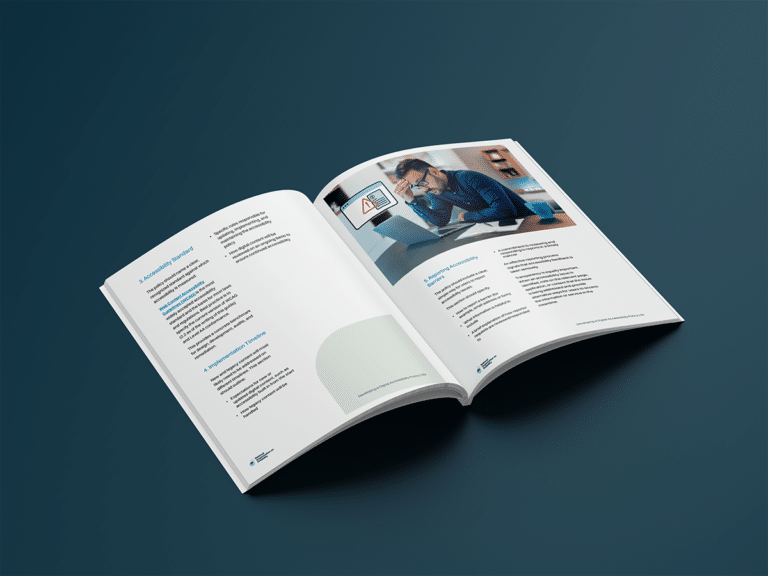
Join the Movement
Your commitment to inclusion deserves strong support. Discover how the NOD Leadership Council can help.